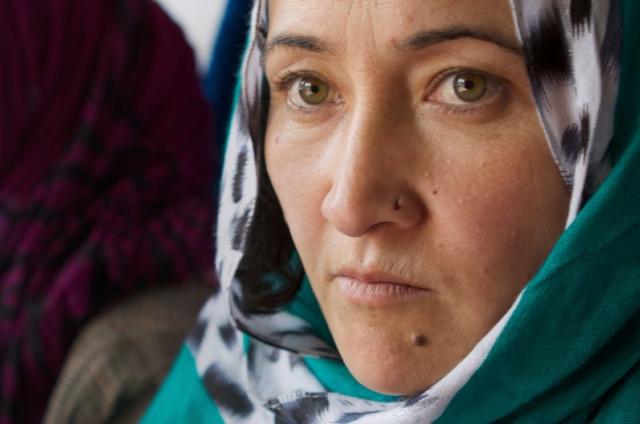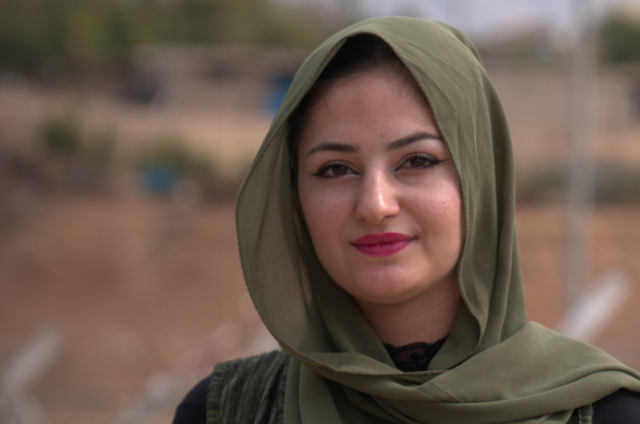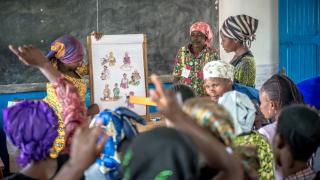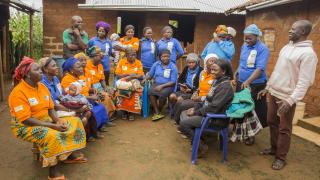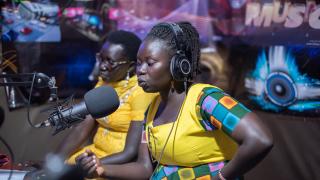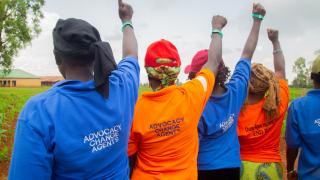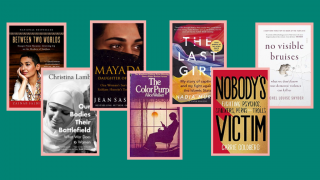Violence against women in conflict
1 in 3 women worldwide have been subjected to violence in their lifetime. Those who live in conflict zones are at even greater risk.
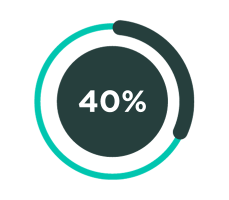
Less than 40% of the women who experience violence seek help of any sort
Source: UN Women

1 in 3 women have been subjected to physical or sexual violence in their lifetime
Source: WHO

51% of women in the Democratic Republic of Congo face physical and/or sexual violence in the hands of their partner or husband
Source: UN Women
What is Violence Against Women?
Violence against women is a fundamental barrier to women’s empowerment
There are multiple forms of violence against women, including physical, sexual, psychological and economic violence. Economic violence is often defined as controlling, exploiting or sabotaging an individual’s access to and use of economic resources (including employment).
Experiences of violence are rarely isolated and often intertwine across and throughout women’s lives. For example, physical or emotional violence by a partner can restrict women’s freedom of movement and discourage them from working. Similarly, the physical and psychological impacts of violence can isolate women and make them more vulnerable to abuse.
Violence Against Women in Conflict
Violence Against Women is used as a weapon of war
Sexual violence in conflict is commonly associated with the phrase ‘rape as a weapon of war’. In reality, the issue is much more complex and covers a wide range of abuses. Rape, sexual slavery, enforced prostitution, forced pregnancy, enforced sterilisation and “any other forms of sexual violence of comparable gravity” are recognised by the International Criminal Court both as crimes against humanity and as war crimes.
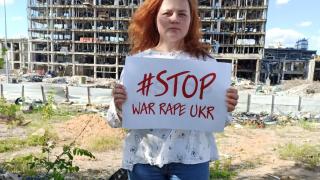
Wherever conflict erupts, sexual violence is present. But no statistics or figures will ever depict the true scale of this horrific crime. For each rape reported in connection with a conflict, the UN estimates that 10 to 20 cases go undocumented. Sexual violence is often referred to as war’s oldest, most silenced, and least-condemned crime.
In conflict-affected and fragile states, sexual violence is often employed as both a deliberate and strategic tactic of war and terrorism to instill fear and control and displace communities already under distress. Conflict-related sexual violence can include rape, forced marriage, sexual slavery, forced pregnancy, forced sterilisation, sexual exploitation or abuse, and human trafficking – all of which inflict long-lasting trauma on survivors, as well as their families and communities.
Domestic violence within conflict
Whilst less commented on, intimate partner violence is one of the most common forms of violence in conflict. All women are vulnerable to violence, but factors such as poverty and conflict, as well as other attributes such as disability, ethnicity, and sexual orientation can increase women’s vulnerability. In conflict, women’s vulnerability to all forms of violence increases.
Conflict-related sexual violence is a growing threat, a violation of human rights, and impedes peacebuilding – it must be eliminated.
Violence against women occurs every day and people now see it as a normal thing because when it happens, nothing is being done.
Our work
Supporting women survivors of war
Women for Women International was established in 1993 to help survivors of sexual violence during the 1992 - 1995 conflict in Bosnia and Herzegovina, in the belief that stronger women build stronger nations. We continue to work with the most socially excluded women in countries affected by conflict across the world. Many of the women we work with are affected by gender based violence, including sexual violence. It is an obstacle in allowing them to live dignified lives, free from fear.
You would think that the world would have changed and would have understood that wars don’t work. And that the raping of women in war or at any time must stop and it’s a war crime.
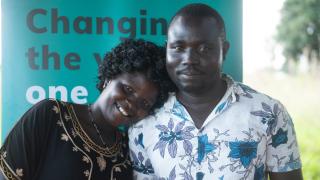
Men's Engagement Programme
Teaching men to become better allies
To definitively end gender norms and inequalities, it’s not enough to work with only women. That’s why we work with men – so they can join as allies and advocates for women’s empowerment and gender equality. When men are brought into the conversation, the entire community supports women as they overcome social and economic barriers.
My life has really changed because before I didn't know the different forms of violence. But today I know about rape and violence. I now respect a woman.
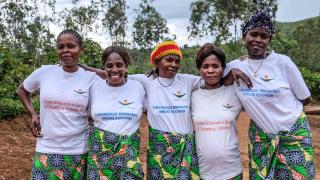
Change Agents Programme
USING ADVOCACY TRAINING TO TACKLE VIOLENCE AGAINST WOMEN
Change Agents drive forward their self-identified priorities to achieve sustainable and long-term change. They often use advocacy to address violence against women issues in their communities.
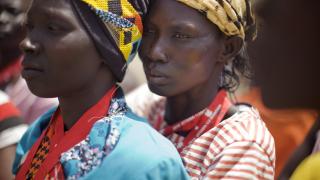
COMMUNITY ATTITUDES TOWARDS VIOLENCE AGAINST WOMEN
VIOLENCE AGAINST WOMEN POLICY BRIEFS
Globally, one third of women have experienced physical and/or sexual violence, especially in fragile and conflict-affected states. We spoke to women around the world about their attitudes towards violence against women. Read our policy briefs, highlighting community views and amplifying the experiences of the most marginalised.
Our Recommendations
Based on our experience and expertise, we make the following recommendations for ending sexual violence in conflict:
- Protection: We call on governments to ensure international laws are upheld and implemented to protect women in war and conflict zones.
- Participation: We recognise that all survivors of sexual violence in conflict have a right to be heard. Their voices must influence decisions that affect their futures and they are entitled to justice for the abuse they have survived.
- Partnership: We demand a monumental increase in resources for women’s rights groups to respond to the needs of sexual violence survivors and challenge the harmful norms that underpin violence against women.
- Prevention: We work with men and women to break down the social norms that portray abuse as ‘normal’ or part of ‘tradition’. Preventing violence against women requires a widespread change of attitudes.

